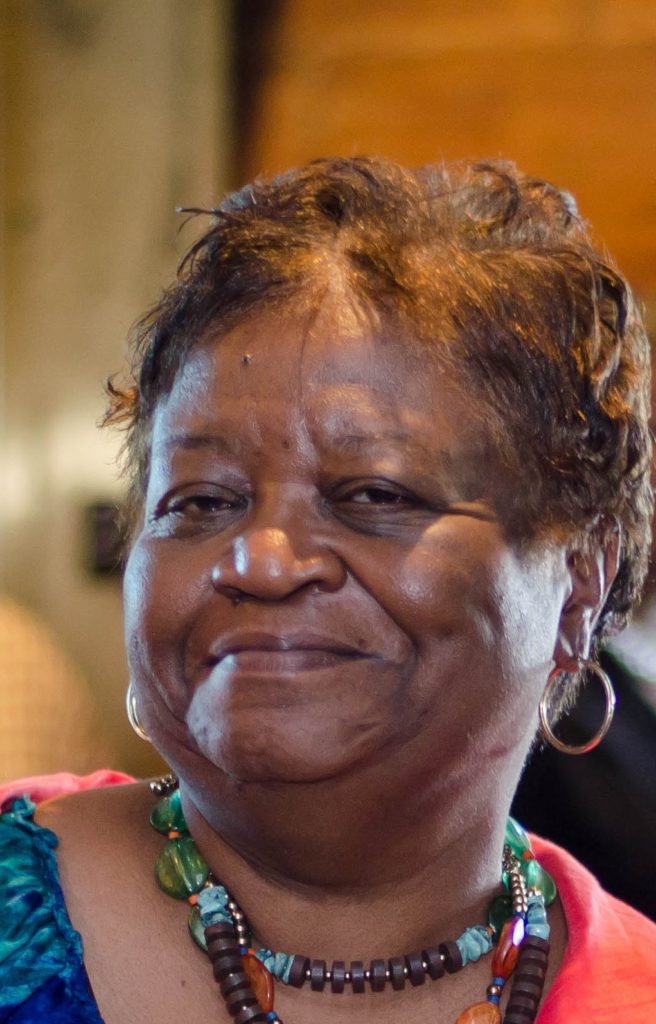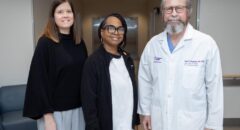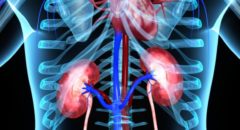
This article was sponsored by Bayer
Facing several severe diagnoses simultaneously can be challenging to accept, especially when you stay on top of your health. When this happens, how do you push yourself out of the initial denial phase that many people go through?
In Mildred Parker’s case, her family history served as a reminder of the complications she didn’t want to face. With this in mind, and with the help of her medical team and support system, she pushed herself out of denial and down the path of advocating for herself and those around her.
While out to lunch with a friend, Parker began to feel dry and experience trouble breathing. Not sure what was going on, she asked her friend to take her to the doctor.
While there, her doctor performed lab work, which revealed an elevated blood test and an issue with her creatinine levels. She was diagnosed with stage 3 chronic kidney disease and referred to a renal specialist for follow-up.
Parker says this diagnosis rocked her world. However, this wasn’t her first experience with hearing unpleasant news from her doctor.
Around May of 2000, right after finishing school, the California resident discovered she had diabetes, which is what would ultimately lead to the chronic kidney disease diagnosis years later.
RELATED: Kidney Disease in Your Future? 7 Unsuspecting Daily Habits to Stop Now
“I was in denial for a while that I couldn’t make it through without any help or complications,” Parker recalls.
However, as time wore on, Parker realized that wasn’t the case. In order to lead a healthy life, she would need to make a sacrifice. Her wake-up call came when she began experiencing eye problems, including a near-detached retina and bleeding behind her eyes.
“That was quite scary for me to deal with because I said, ‘Well, how would I deal with it if I didn’t have my eyesight?’ That was the one thing that really bothered me because I had an uncle that was a truck driver, and he got to a point where he couldn’t see. So not only did it impact his livelihood, he got depressed,” Parker shares. “I wanted to make sure I did all I could to not get in that window.”
Parker also recalls a diabetes educator telling her that if she didn’t get a hold of it, she would fall victim to complications.
“Every now and then, I think back to her voice and what she was telling me. It is important that you get a grip on it,” Parker adds.
One reason she is determined to get a grip on her health is to avoid having to go on dialysis. Although doctors have notified her that her risk of going on dialysis is low, she’s worried about how undergoing chemotherapy may affect her outcome. “I often wonder how taking all of these treatments for breast cancer will shake out in the future,” she says.
The first time Parker was diagnosed with breast cancer, she was completely shocked.
“I felt so stupid for not noticing. How could I have cancer and not know?” Parker questions. Like many Black women, Parker has dense breasts, which often make it challenging for mammograms to detect cancer.
“That plagued me for a while. How can I be checking my body and still not realize that there was something there that I couldn’t control?” Parker shares, adding that she began questioning what she could have done differently to have a better outcome.
Parker is now nearing the end of chemotherapy treatment after being diagnosed with breast cancer again in February. After 11 years in remission, Parker felt something fleshy on top of the scar from the lumpectomy she received during her first stint with breast cancer. Concerned, she went for a mammogram, which later confirmed that the cancer had returned.
“It’s just little things that keep popping up and that make you feel alert to what you have to do to balance your health. It is challenging. It’s like I’m on constant alert that I need to look out for things,” Parker says.
RELATED: Beware! Failing Kidneys Aren’t The Only Thing That Cause Kidney Disease
“It’s definitely a constant juggling act, but having the right healthcare team that balances your labs can definitely be motivating to do all you can to get better because it’s a job in itself just taking care of basic things,” Parker adds.
In addition to having the right healthcare team, Parker’s son Brandon, who is on his own health and weight loss journey after being diagnosed with type 2 diabetes, also helps her.
“You have to have a team (not only with your medical team), but like my son Brandon. He helps me a lot to stay on point with my appointments, and through me, I think he’s learning what he needs to do, too,” she shares.
She also uses her health journey as a way to inspire her sisters to follow up on their own health.
“I’m the first one in our particular little family unit that has come up with breast cancer, so I encourage my sisters to really follow through with them getting their mammograms and surveillance done once a year, especially because of my status,” Parker, whose family has a history of diabetes and kidney complications, says.
After finishing chemotherapy, Parker will continue to be monitored regularly by doctors. Although she’s been disabled for eight years, she has a passion for learning and giving back. She hopes to eventually be able to get back to work for at least a couple of days out of the week.
Her hope and advice for others? Stay on top of your health.
“If you feel something that is not right, you have to speak up and advocate for yourself. Keep going back even if you can’t really pinpoint it so that your medical team can help you look into what it is that you’re trying to describe and maybe do more testing for you so you could actually get the information,” Parker concludes.
This article was sponsored by Bayer









